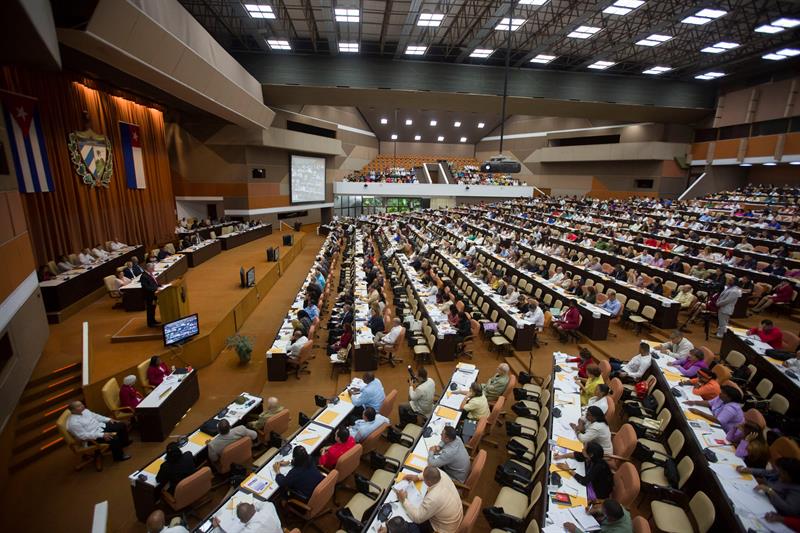RIO DE JANEIRO, BRAZIL – The National Assembly of Cuba (unicameral Parliament) criticized the intention of several deputies to debate in the plenary of the European Parliament next June 8 on the political situation and human rights in the Caribbean island.
A note from the Cuban Parliament denounced that the “maneuver” of a “small group of MEPs who respond to Washington’s agenda” aims to “break” the Caribbean country’s ties with Brussels.

The declaration, signed by the International Relations Commission of the Cuban legislative body, criticizes the Euro-deputies’ attempt to adopt a resolution against Cuba “distorting reality”.
The Cuban assembly members described the treatment of their country as “double standards”. According to the European Parliament’s website, they called for a halt to the debate scheduled for next Tuesday.
Likewise, they question the fact that their European peers have not convened the plenary session to analyze the impact of the economic embargo (blockade) imposed by the U.S., which they consider to be “the main violation of human rights suffered by the Cuban people”.
The deputies recall in the declaration that this policy has intensified in recent years and also affects the citizens of Europe, especially its businessmen.
The Delegation of the European Union (EU) in Cuba recently expressed its “concern” for the last hunger and thirst strike of the artist and dissident Luis Manuel Otero Alcántara, who spent a month in a hospital in Havana, which led other activists and organizations to denounce the case, considering that he was being held against his will.
In May, the president of the European Parliament’s Human Rights subcommittee, María Arena, asked the Cuban government to guarantee the dissident’s health and life and cease “the intimidation and harassment of the San Isidro Movement and other peaceful demonstrators”.
In April, four MEPs, including the vice-president of the European Parliament, Dita Charanzová, sent a letter expressing their concern for the health condition of José Daniel Ferrer, another Cuban dissident who at that time went on hunger strike to protest the surveillance of his organization’s headquarters in eastern Santiago de Cuba.
Cuba and the EU relaunched their ties in 2016 with the Political Dialogue and Cooperation Agreement, provisionally in force since November 2017, which represented the end of 20 years of the so-called “common position”, a policy that conditioned bilateral relations to advances in human rights and democracy in the Caribbean country.

